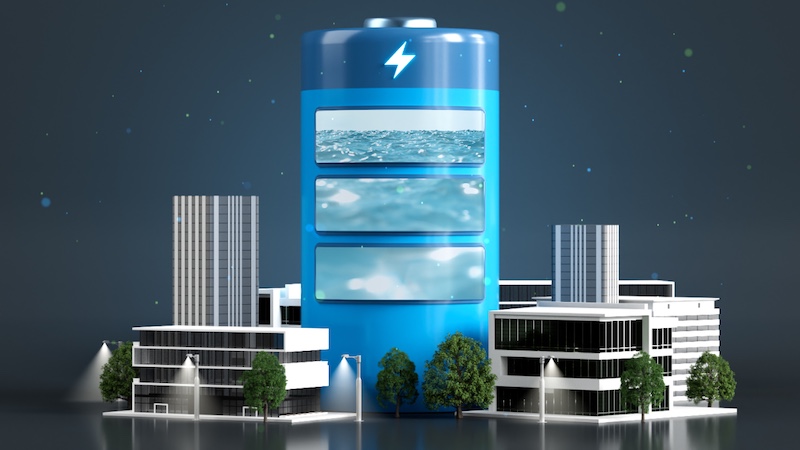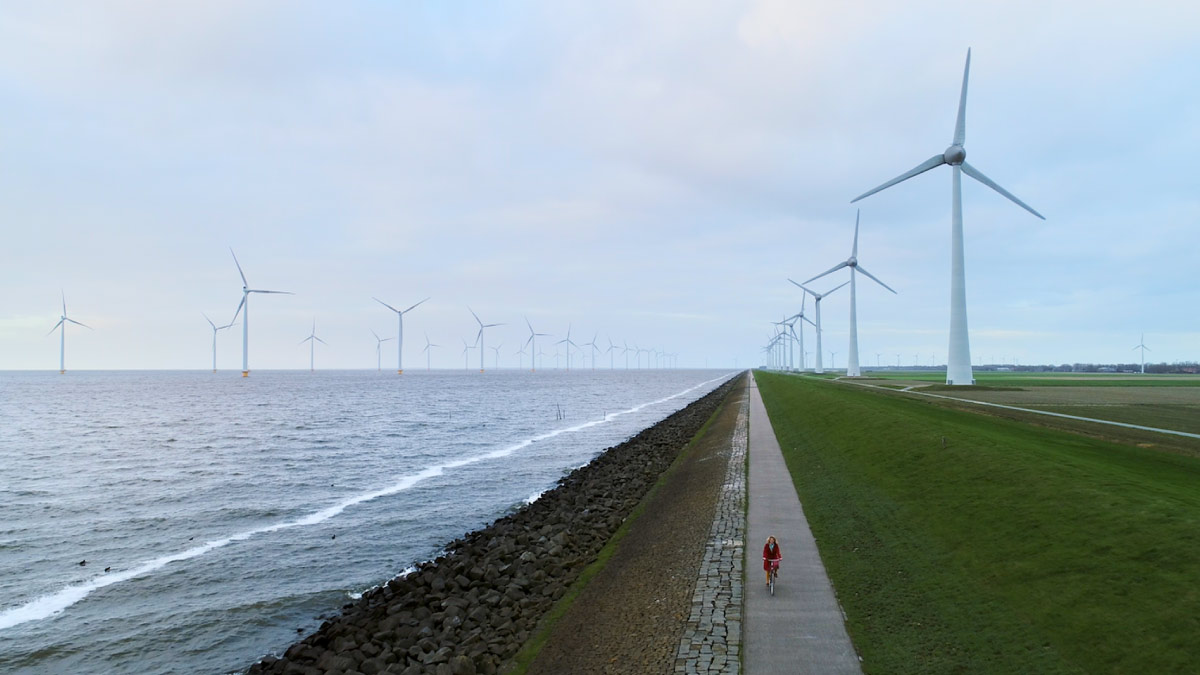Cisco takes its climate efforts very seriously. And the company has set highly ambitious goals for greenhouse gas emissions and circularity.
One key tool to advance these goals? Investments.
“The future demands solutions that are sustainable,” said Jon Koplin, Cisco Investments senior director, who leads investments in Europe and in sustainability. “It’s no longer a ‘nice to have’; it’s become a ‘must have’ — for us and for our customers.”
Cisco Investments is among the world’s most active corporate venture investors, with a strong foundation in security, AI, networking, collaboration, and more. Recently, though, it has accelerated its efforts in the sustainability space.
These initiatives complement those of the Cisco Foundation, the company’s philanthropic wing, which in 2021 pledged $100 million in climate-related grants to nonprofits and impact investments, particularly in developing regions like Africa and the Amazon.
On the Cisco Investments side, the company seeks to invest in organizations that align with Cisco’s own climate goals and those of its customers.
“There is incredible innovation taking place in the climate technology space and our goal is to enable these solutions by investing in companies that align with our environmental sustainability goals,” said Mary de Wysocki, Cisco’s chief sustainability officer. “We’re backing early-stage startups that bring breakthrough ideas to life and supporting them to scale their impact to provide business value and address the challenges our planet faces.”
For Cisco, helping the planet is also a smart business strategy.
“At the end of the day,” Koplin stressed, “a lot of these innovations may ultimately drive lower operating costs and increase power efficiency across a number of products and services.”
Two key examples are Cisco’s investments in CorPower Ocean, which is developing powerful solutions to harness ocean waves for 24/7 renewable energy, and DEScycle, with its innovative, low-energy processes for extracting critical minerals from e-waste.
Endless energy, from ‘nature’s battery’
Wind and solar power are having an increasingly positive impact on global energy needs, with renewable sources making up 30 percent of global electricity sources in 2023.
But as good as they are, renewables can have shortfalls. For starters, the sun gets blocked by clouds and the wind doesn’t always blow. Batteries solve much of the problem, but they have their own limitations.
“Given the intermittent nature of solar and wind,” said Kelsi Doran, Cisco’s head of sustainability strategy and transformation, “Cisco became interested in using technology to harness the power of waves, with their potential to provide clean energy 24/7, at utility scale.”
That’s where CorPower Ocean comes in. The Stockholm-based company has been exploring wave power since 2012 and today has one of the most advanced solutions in the energy space.
Along the way — with test phases off Scotland, Portugal, and other coastlines — it has greatly improved the energy output of its wave-energy converters and their survivability in storms, two challenges that have bedeviled other attempts at scaling wave energy.
“I believe it's fair to say that this is the first machine that has shown solid, strong survivability while doing efficient power generation in the regular wave conditions,” claimed Patrick Möller, CEO of CorPower Ocean. “It’s a combination which hasn’t been there previously for wave energy.”
CorPower Ocean’s floating wave-energy generators are about 260 feet tall and 30 feet wide and rated at 300 kilowatts each — enough to power a medium-sized office building. With a unique anchor system and hydraulics inspired by the pumping action of the human heart, they leverage the up/down motion of waves to create electricity via dynamos within each buoy.
With this latest technology, CorPower Ocean gets more energy from smaller, lighter structures that are scalable for larger floating clusters, or “farms.”
“It’s a huge step upwards in structure efficiency,” Möller added, “or at least five times improvement compared to previous state of the art in the field.”
As for Cisco’s investment, Koplin sees a promising opportunity to scale a potentially high-impact technology.
“The ocean is like the world’s largest battery,” he said. “There’s just so much power constantly running through these enormous oceans. And it's very easy to imagine a farm being co-located with offshore wind and doubling or potentially even tripling the amount of energy that's available from a given space that's already been allocated to power companies.”
Tapping an e-waste ‘gold mine’
In 2022, the U.N’s Global E-waste Monitor estimated that a record 62 million metric tons of e-waste was generated globally. And it’s only increasing.
As for recycling, the U.N. estimated less than a quarter of that e-waste was properly treated. The rest was mostly burned or left in landfills — in either case releasing dangerous toxins like lead, cyanide, and mercury into the environment, while losing valuable metals like gold, silver, platinum, and palladium.
Such metals represent an almost literal gold mine. According to E-waste Monitor, less than one quarter (22.3 percent) of e-waste was documented as having been properly collected and recycled in 2022. That left $62 billion worth of recoverable natural resources unaccounted for.
Cisco is just 4 percentage points shy of its goal of incorporating Circular Design Principles into 100 percent of its new products and packaging by FY25. But e-waste remains a key concern, and the company is always on the lookout for new solutions.
That’s why London-based DEScycle caught Cisco’s attention.
The startup has developed a novel low-energy, low-carbon process for separating critical metals from e-waste. Using deep eutectic solvents (DES), DEScycle has successfully demonstrated its chemical process for separating metals in labs and is now looking to scale.
“DEScycle was originally a collaboration with the University of Leicester,” said DEScycle co-founder and managing director Dr. Leo Howden. “But we wanted to take DES out of the university environment and create a technology and a process that can be applied commercially.”
Initially focused on the mining industry, DEScycle soon realized a great opportunity in e-waste.
“Our vision and mission is to replace the reliance on landfills and energy-intensive smelters with something that is sustainable,” Howden added, “a solution that doesn't have an impact on the environment.”
DESCycle’s non-toxic, salt-based solvents are themselves recyclable, as opposed to some other e-waste chemical processes that rely on heavy acids.
“We have true recyclability of our solvents,” claimed DEScycle CTO Rob Harris. “The unique set of properties in our solvents give us fantastic efficiencies that we don't see in water and acid-based processes. We can genuinely recycle our solvents, which means we're not shipping in loads more chemicals onto the site.”
The solvents can also be tailored for specific metals, enabling traceability. So, for example, palladium from a Cisco product could go straight back to Cisco. And the process enables simpler, more localized recycling of e-waste, as opposed to shipping many tons of it to far-off, centralized smelters and landfills.
“You can avoid large, aggregated solutions,” explained Howden. “And you can do it in your own backyard. Because we can shrink the process down and co-locate it near the supply of the material.”
Such technologies could reap future benefits.
“It's a very clean process, and they are able to do it at low scale and still be reasonably economical,” Koplin explained, “whereas some other solutions require very large plants or can’t cover the range of metals that DEScycle does. So, it's a very innovative solution to a long-existing problem.”
DesCycle and CorPower Ocean represent but two technologies related to sustainability that Cisco Investments is helping to accelerate.
Koplin shared the excitement that’s building on the Cisco Investments team for what it can accomplish — for global ecosystems and for the business. But he tempered it with caution.
“It’s so great to work on something that could change the future of our planet,” he said. “But there's still a lot of ground to cover. It’s going to be a long journey.”
Nevertheless, he’s encouraged that the business case for sustainability — in efficiency, energy savings, customer loyalty, and more — is becoming clear to many more organizations.
“We’re approaching a future,” Koplin concluded, “where the more you incorporate sustainable solutions into your business, the more competitive it will be.”





